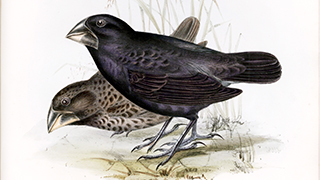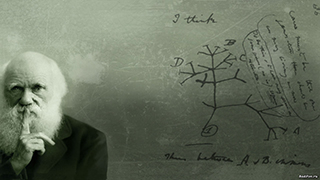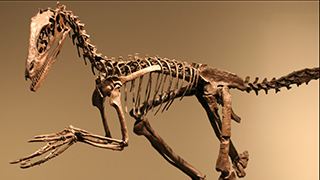MENU
The Electronic Scholarly Publishing Project: Providing world-wide, free access to classic scientific papers and other scholarly materials, since 1993.
More About: ESP | OUR CONTENT | THIS WEBSITE | WHAT'S NEW | WHAT'S HOT
ESP Legal Notifications: Privacy 03 Jul 2025 Updated:
ESP.ORG Privacy Policy
This policy was last updated 8 Dec 2016.
The ESP.ORG website is operated as a service to the scientific community and for the general public. This page informs you of our policies regarding the collection, use and disclosure of Personal Information we receive from users of the site.
We use your personal information for providing and improving our Site. By using the Site, you agree to the collection and use of information in accordance with this policy.
While using this Site, you may be asked to provide us with certain personally identifiable information that can be used to contact or identify you. Personally identifiable information that we might request from you, or about you, may include, but is not limited to: your name, your email address, your ZIP code, your telephone number, date of birth, level of education, shoe size, and your dog's name (and breed). By combining this information with other, publicly available big data sources, we will probably be able, should we choose to try, to determine your home address, the value of your house, whether or not you have a mortgage, the names and birthdays of all of your first-degree relatives (e.g., parents, spouse, children), where you work, and what you like to eat for lunch on Monday.
Whenever you go on line, your browser sends information to the web sites you visit. Most web sites, including this Site, keep a log of that information. The logged data may include information such as your computer's Internet Protocol (IP) address, the browser you are using, the operating system (OS) of your computer, the version of your browser and OS, the pages on this Site that you visit, the time and date of your visit, the time spent on our pages, and other statistics.
The bottom line is, going online and maintaining privacy are pretty much incompatible notions. You cannot go online without carrying a digital identifier with you and you constantly leave a trail of digital exhaust in your wake.
Many (but not this one) websites work very hard to connect your digital exhaust with your online identity, and then back to your real identity, in order to tailor their marketing to your individual persona.
Although we won't do this to you, others will. You have been warned.
ESP Quick Facts
ESP Origins
In the early 1990's, Robert Robbins was a faculty member at Johns Hopkins, where he directed the informatics core of GDB — the human gene-mapping database of the international human genome project. To share papers with colleagues around the world, he set up a small paper-sharing section on his personal web page. This small project evolved into The Electronic Scholarly Publishing Project.
ESP Support
In 1995, Robbins became the VP/IT of the Fred Hutchinson Cancer Research Center in Seattle, WA. Soon after arriving in Seattle, Robbins secured funding, through the ELSI component of the US Human Genome Project, to create the original ESP.ORG web site, with the formal goal of providing free, world-wide access to the literature of classical genetics.
ESP Rationale
Although the methods of molecular biology can seem almost magical to the uninitiated, the original techniques of classical genetics are readily appreciated by one and all: cross individuals that differ in some inherited trait, collect all of the progeny, score their attributes, and propose mechanisms to explain the patterns of inheritance observed.
ESP Goal
In reading the early works of classical genetics, one is drawn, almost inexorably, into ever more complex models, until molecular explanations begin to seem both necessary and natural. At that point, the tools for understanding genome research are at hand. Assisting readers reach this point was the original goal of The Electronic Scholarly Publishing Project.
ESP Usage
Usage of the site grew rapidly and has remained high. Faculty began to use the site for their assigned readings. Other on-line publishers, ranging from The New York Times to Nature referenced ESP materials in their own publications. Nobel laureates (e.g., Joshua Lederberg) regularly used the site and even wrote to suggest changes and improvements.
ESP Content
When the site began, no journals were making their early content available in digital format. As a result, ESP was obliged to digitize classic literature before it could be made available. For many important papers — such as Mendel's original paper or the first genetic map — ESP had to produce entirely new typeset versions of the works, if they were to be available in a high-quality format.
ESP Help
Early support from the DOE component of the Human Genome Project was critically important for getting the ESP project on a firm foundation. Since that funding ended (nearly 20 years ago), the project has been operated as a purely volunteer effort. Anyone wishing to assist in these efforts should send an email to Robbins.
ESP Plans
With the development of methods for adding typeset side notes to PDF files, the ESP project now plans to add annotated versions of some classical papers to its holdings. We also plan to add new reference and pedagogical material. We have already started providing regularly updated, comprehensive bibliographies to the ESP.ORG site.
ESP Picks from Around the Web (updated 28 JUL 2024 )
Old Science

Weird Science

Treating Disease with Fecal Transplantation
Fossils of miniature humans (hobbits) discovered in Indonesia
Paleontology

Dinosaur tail, complete with feathers, found preserved in amber.
Astronomy

Mysterious fast radio burst (FRB) detected in the distant universe.
Big Data & Informatics

Big Data: Buzzword or Big Deal?
Hacking the genome: Identifying anonymized human subjects using publicly available data.